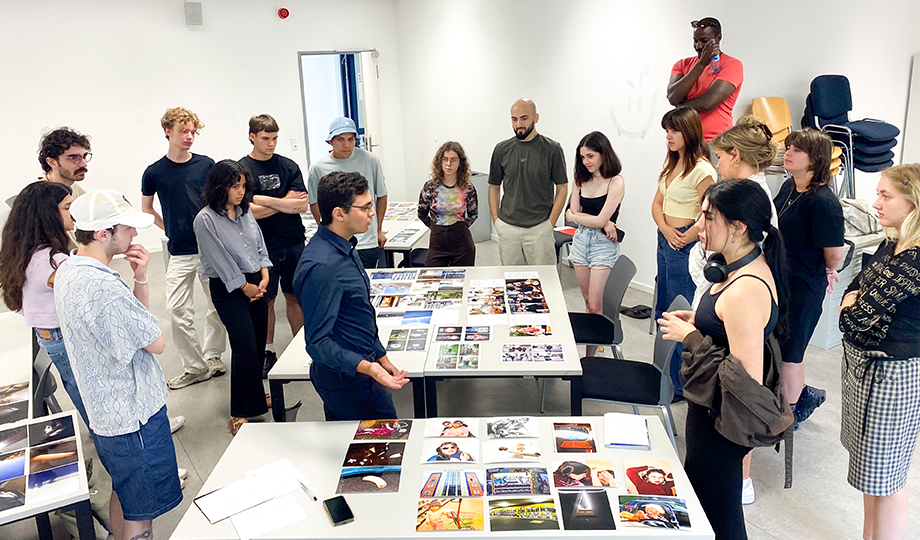
You’ve got your heart set on studying abroad, but everywhere you look, visa caps are tightening and rejection rates are climbing. International students’ visa uncertainty has never been more real, with visa issues in Canada and the US for students making headlines weekly. Meanwhile, there’s Germany – quietly becoming the smart money choice for students who are realising they can study in Germany without the drama. Want to know what’s making it so appealing? Let’s dive into why savvy students are packing their bags for Deutschland.

Why International Students Are Looking Beyond Canada and the US
The numbers tell the story: Canada refused 52% of study permit applications in 2024, up from 38% in 2023. That's not just a statistic – that's thousands of dreams put on hold. And it's not getting better anytime soon.
For 2025, Canada has capped study permits at 437,000, representing a 10% decrease from the 2024 cap. That means you're competing for fewer spots with higher rejection rates.
The US isn't exactly rolling out the red carpet either. Between lengthy processing times and unpredictable policy changes, American universities are seeing their international appeal wane.
That adds up to one thing for international students: visa uncertainty. That’s why Germany, with its clearer pathways and long-standing commitment to welcoming international students, is increasingly attractive.

Germany’s Growing Appeal as a Top Study Destination
Germany's facing a skilled worker shortage that will hit 768,000 by 2028. Translation? They need you as much as you need them. It's a perfect alignment of interests – students seeking opportunities and a country actively creating pathways for international talent.
The benefits of studying in Germany go way beyond just getting accepted. This is a country that’s inviting international talent to stick around and build careers.
Affordable Tuition and Living Costs in Germany
One of the biggest draws? Affordability.
Tuition is often free or very low compared with North America. Even when fees apply, they’re usually a fraction of what you’d expect elsewhere. Add in more manageable living expenses in Germany for students (especially with good public transport and student housing options) and you get an education that won’t leave you in long-term debt.
Streamlined Visa Process for International Students
Remember those horror stories about Canadian visa rejections? Germany’s taking a completely different approach. The Germany student visa requirements are straightforward, because they actually want to approve your application.
Recent policy changes have made it even easier for international students to work while studying (up to 20 hours per week), and the post-study work visa practically rolls out the red carpet for graduates wanting to start their careers.
No bureaucratic maze. No mysterious rejection letters. Just a clear path from application to graduation to career.
Strong Job Prospects and Post-Study Opportunities
This is where Germany truly shines. The OECD found that Germany keeps nearly half of its international graduates ten years after they start studying, the highest rate among top destinations.
That represents real opportunities. Students studying economics, engineering and computer science are particularly in demand, but the job market is hungry for talent across sectors.
Not only that, but students give back eight times more to public budgets than the government invests in them. Germany knows you’re not just a student – you’re an investment in their future.
Life in Germany: Culture, Safety and Student Experience
Of course, it’s not just about the classroom.
Student life in Germany is everything you’d hope for and more. Think Christmas markets in December, beer gardens in summer and a culture where “work-life balance” is more than a buzzword.
Germany consistently ranks among the world’s safest countries. You can walk home from the library at midnight without constantly looking over your shoulder. That kind of security gives you the peace of mind to focus on the things that matter: your studies and your social life.
Living in Germany as an international student means joining a community where diversity isn’t just tolerated – it’s celebrated. And let’s not forget the location advantage. Weekend trips to Paris, Prague or Amsterdam become as easy as hopping on a train. Your Instagram feed will thank you later.
Why Choose UE Germany for Your Master’s Degree Journey
Here’s where we get specific about your next steps. If you’re serious about wanting to study a master’s in Germany, UE Germany offers programmes designed for the real world, taught by industry experts who know exactly what employers want.
UE’s approach isn’t about memorising textbooks. It’s about building skills that’ll make you indispensable in tomorrow’s job market. Small class sizes mean you’re not just another face in a lecture hall – you’re working closely with professors who know your name and your career goals.
Plus, UE’s connections with German industry mean internships and job opportunities that other institutions simply can’t match. When you graduate with your degree still warm from the printer, you’ll have the network and skills to hit the ground running.
How to Apply to Study in Germany
Applying is simple:
- Choose your programme on the UE website.
- Check entry and visa requirements (our team can help clarify the details).
- Submit your application online, and we’ll guide you through the next steps, from your acceptance letter to your arrival in Germany.
Final Thoughts: Germany as the Smart Choice for International Students
While other countries are closing doors, Germany’s opening them wider. The combination of world-class education, affordable costs, clear career pathways and support for international graduates makes this a no-brainer decision.
Study abroad in Germany isn’t just about getting a degree – it’s about positioning yourself for a career in Europe’s economic powerhouse. And with visa uncertainty plaguing traditional destinations, Germany represents stability, opportunity and a genuine welcome for international talent.
Ready to make the smart choice for your future? Explore UE’s master’s degrees in Germany and discover how your German adventure could begin sooner than you think.
FAQ's
